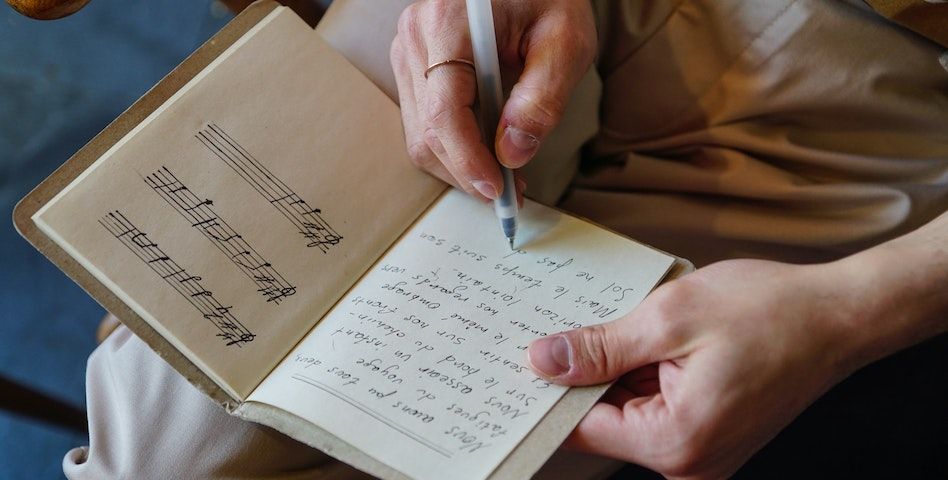
How To Become A Songwriter?
Songwriting is a deeply creative and fulfilling pursuit that allows you to express your thoughts, emotions, and stories through music. Whether you're a seasoned musician or a beginner, the path to becoming a songwriter is open to anyone with a passion for music and a willingness to learn. In this blog, we'll explore the steps to embark on your journey to becoming a songwriter.
1. Cultivate Your Love for Music
At the core of songwriting is a deep love for music. To become a songwriter, it's essential to immerse yourself in various genres, styles, and eras of music. Listen to different artists, study their lyrics, melodies, and arrangements, and develop a broad musical palette. The more you appreciate and understand music, the better equipped you'll be to create your own songs.

2. Learn an Instrument
While it's not mandatory, knowing how to play a musical instrument can greatly enhance your songwriting abilities. Instruments like the guitar or piano are popular choices for songwriters as they provide a solid foundation for crafting melodies and harmonies. Learning an instrument allows you to explore different chords, progressions, and musical ideas, making the songwriting process more accessible.
3. Study Existing Songs
To become a songwriter, it's crucial to analyze and dissect existing songs. Take your favorite tracks and study their structure, lyrics, and composition. Pay attention to how the songwriters convey emotions, tell stories, and create memorable hooks. This analytical approach will help you gain insights into effective songwriting techniques.
4. Write Regularly
Practice makes perfect, and this applies to songwriting as well. Set aside time to write regularly, even if it's just a few lines or a rough melody. The more you write, the more you'll refine your skills and develop your unique style. Don't be discouraged by initial drafts that may not meet your expectations; songwriting is an iterative process.
5. Experiment with Lyrics
Lyrics are the heart and soul of a song. Experiment with different lyrical styles, themes, and storytelling techniques. Some songwriters draw inspiration from personal experiences, while others create fictional narratives. Find what resonates with you and explore various approaches to lyric writing.
6. Collaborate with Others
Collaboration can be a powerful tool for songwriters. Partnering with fellow musicians, lyricists, or producers can bring fresh perspectives and ideas to your songs. Collaborative efforts can lead to unique and innovative compositions that you might not have created on your own.
7. Record Your Songs
Recording your songs, even in a basic home setup, can help you refine your compositions. Hearing your music played back allows you to assess its flow, structure, and overall sound. It's a valuable step in the songwriting process that enables you to make necessary adjustments and improvements.

8. Seek Feedback
Don't hesitate to share your songs with friends, family, or fellow musicians for feedback. Constructive criticism can help you identify areas for improvement and gain valuable insights into your work. Be open to suggestions, but also trust your instincts and artistic vision.
9. Perform Your Songs
Performing your songs in front of an audience, whether in a small gathering or an open mic night, can be a transformative experience. It provides an opportunity to gauge the audience's reaction and connect with listeners on a deeper level. The live performance aspect of songwriting can also inspire you to refine your songs further.
10. Embrace Growth and Evolution
As you continue on your journey to becoming a songwriter, remember that growth and evolution are natural processes. Your style, skills, and preferences may change over time, and that's perfectly normal. Embrace these changes and allow your songwriting to evolve organically.

Conclusion: A Journey of Self-Expression
Becoming a songwriter is a rewarding journey of self-expression and creativity. It's a process that requires dedication, practice, and a genuine love for music. As you cultivate your skills and develop your unique voice, remember that there are no strict rules in songwriting. Your songs are an extension of yourself, and they have the power to connect with others on a profound level. So, whether you're writing for personal fulfillment or aspiring to share your music with the world, the path to becoming a songwriter is a fulfilling and meaningful one.